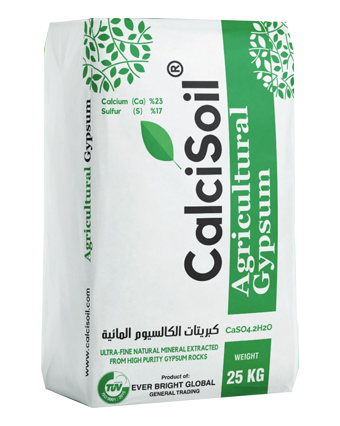
CalciSoil® Agricultural Gypsum
CalciSoil gypsum is a mineral derived from natural gypsum rocks formed centuries ago. Being moderately soluble, it is a good source of essential macronutrients Ca (Calcium) and S (Sulfur). It is also an effective soil amendment as it can improve physical and chemical properties of soil. Chemically speaking, it is calcium sulfate dihydrate CaSO4 2H2O. Other common names: gypsum fertilizer, agricultural gypsum.

